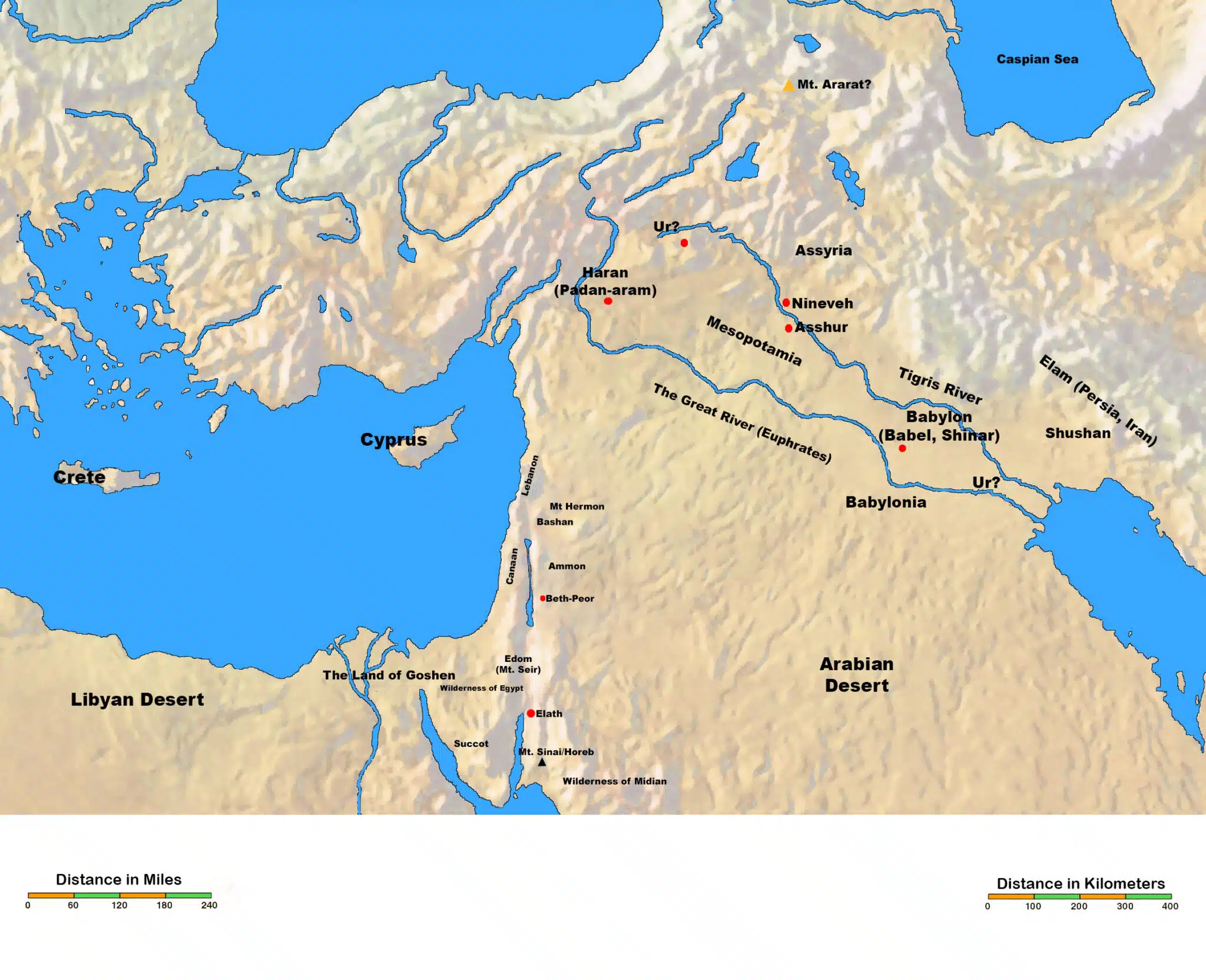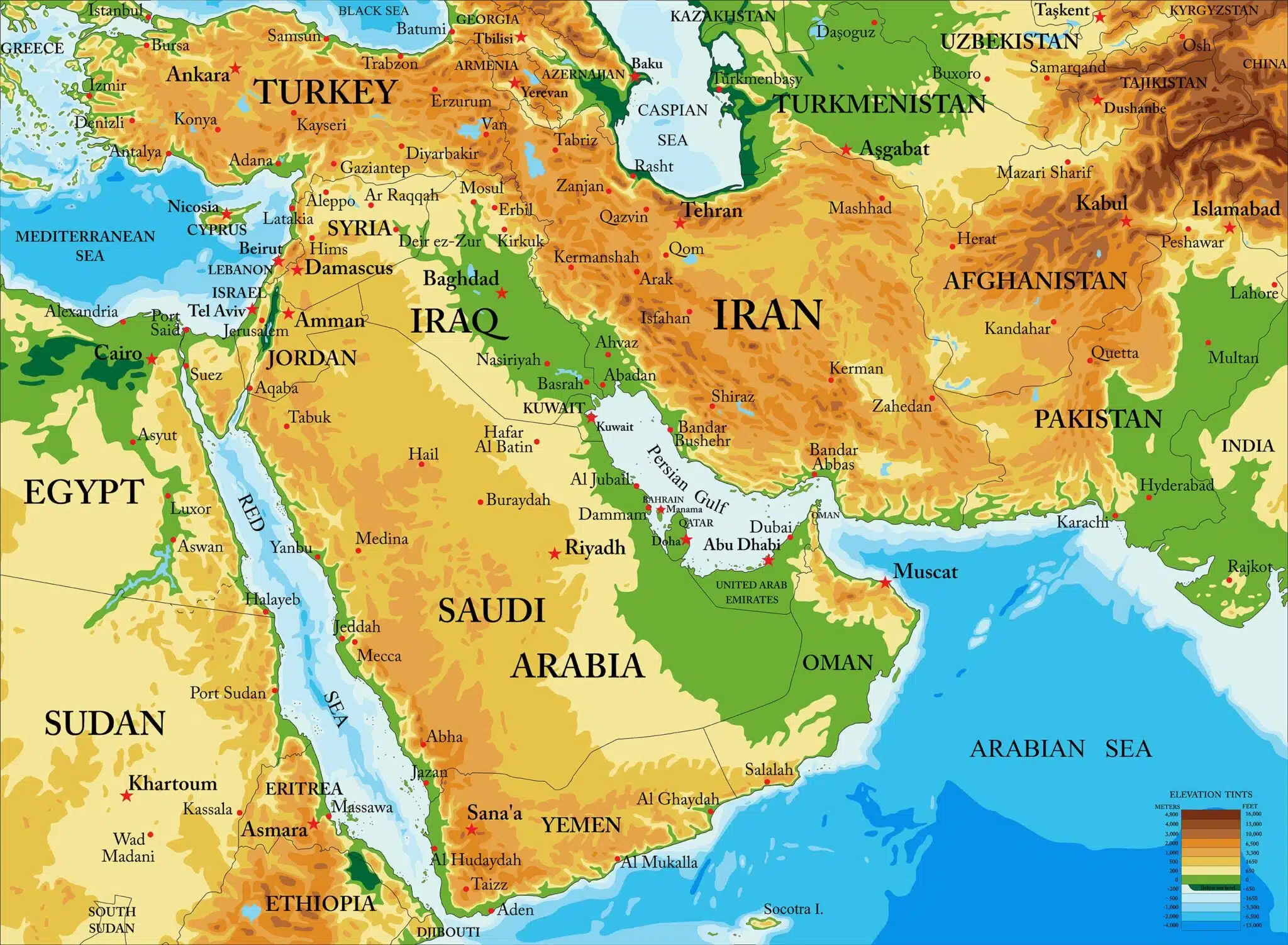The lineage of Shem is presented, including Arpachshad, Shelah, and Eber.
The genealogy of Shem serves to introduce his descendent, Abraham. Accordingly the historical record now narrows from the scope of the entire human race to one branch of humanity, those descended from Shem, or the Semites. It narrows further to one man, Abram, who becomes the head of the Hebrew nation.
In Genesis 11:10-26 the family lineage is noted, from Shem to Abraham, covering ten generations. The generations of Shem provide the beginning of the history of God’s chosen people. God chooses a particular people through which to bless and bring deliverance to the entire human race.
The Genesis narrative now transitions from general history to Hebrew history, and the beginning of the patriarchal era. The lineage of Shem, which culminates in Abraham, is placed immediately following Babel’s inhabitants’ failed attempt at making a name for themselves. This shows a contrast, that a truly great name comes by God’s grace and obedience to Him.
Arphaxad is the firstborn of Shem. He was born two years after the flood.
Shem fathered Arphaxad at one hundred years old and then lives five hundred more years, which gives him a total life span of 600 hundred years, considerably shorter lifespan than Noah (950 years, Genesis 9:29). Abraham was also 100 years when his son, Isaac, was born (Genesis 21:5). Ishmael was born when Abraham was 86 years old (Genesis 16:16). What should be noted is the dwindling life spans of the patriarchs following the flood. Arphaxad’s life (438 years) is only two-thirds of his father Shem (600 years), and Peleg’s life (239 years) is about half of his father Eber (464 years). In the early patriarchs, having children at great ages is common. By the time of Abraham, being one hundred is considered being past child bearing age (Genesis 17:17). Abraham’s grandfather Nahor lives only 138 years which is less than Abraham’s 175 years.
Eber, the fourth generation, is the last of the patriarchal ancestors to live more than four centuries. The lifespans of the six generations listed after Eber are about half the length of the first four generations after Noah. By the time of King David (around 1000 BC), fourteen generations after Abraham (Matt 1:17), the expected life span is seventy years, roughly what it is today in developed countries (Psalm 90:10).
Biblical Text
10 These are the records of the generations of Shem. Shem was one hundred years old, and became the father of Arpachshad two years after the flood; 11 and Shem lived five hundred years after he became the father of Arpachshad, and he had other sons and daughters. 12 Arpachshad lived thirty-five years, and became the father of Shelah; 13 and Arpachshad lived four hundred and three years after he became the father of Shelah, and he had other sons and daughters. 14 Shelah lived thirty years, and became the father of Eber; 15 and Shelah lived four hundred and three years after he became the father of Eber, and he had other sons and daughters.
Check out our other commentaries:
-
Isaiah 53:10 meaning
Isaiah predicts that the Messiah will willingly lay down His life as a guilt offering which will please the LORD. Isaiah also predicts that the...... -
Romans 7:24-25 meaning
It is through faith in Jesus that we are set free from our carnal desires and the sin nature that produces them. While we are...... -
Hebrews 6:4-6 meaning
Some believers squander the immense benefits of the gift of salvation and live in rebellion to God. They fall away from their faith. This does...... -
Matthew 1:20-21 meaning
An angel of the Lord comes to Joseph in a dream and reveals four unusual things: his betrothed has been faithful to him despite her...... -
Matthew 7:12 meaning
Jesus commands His disciples in every circumstance to treat people the same way we want them to treat us. This is both a distillation of......




